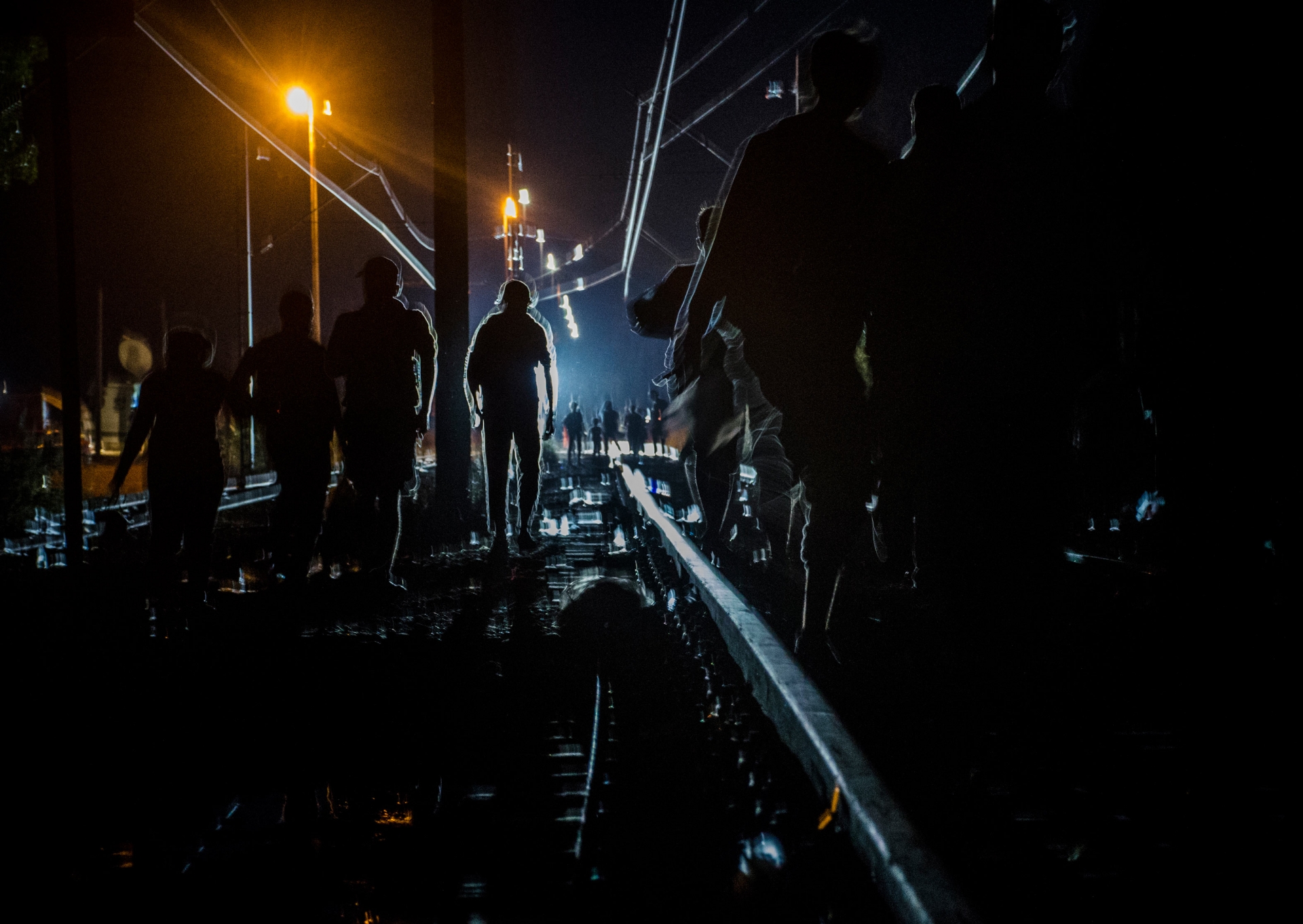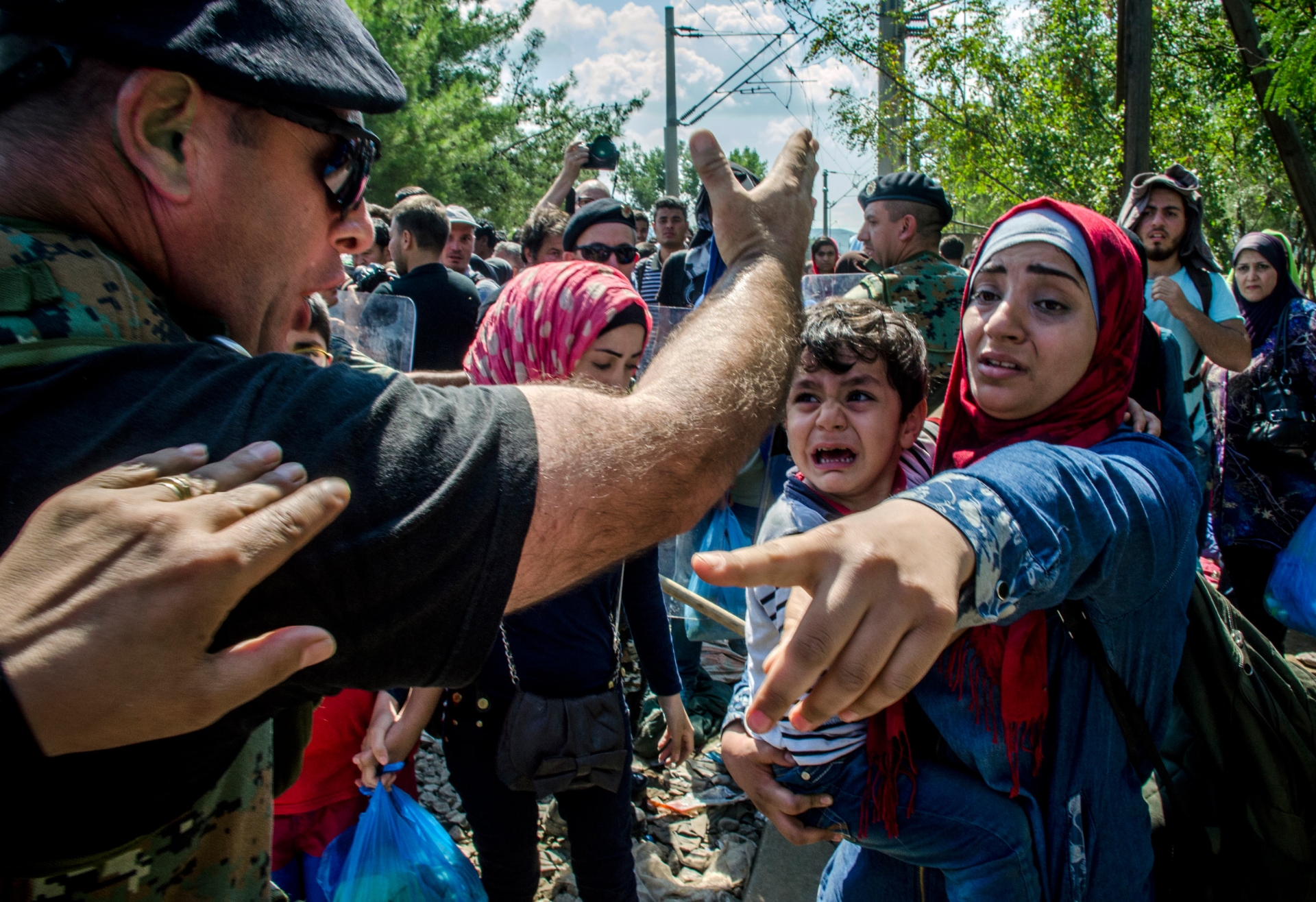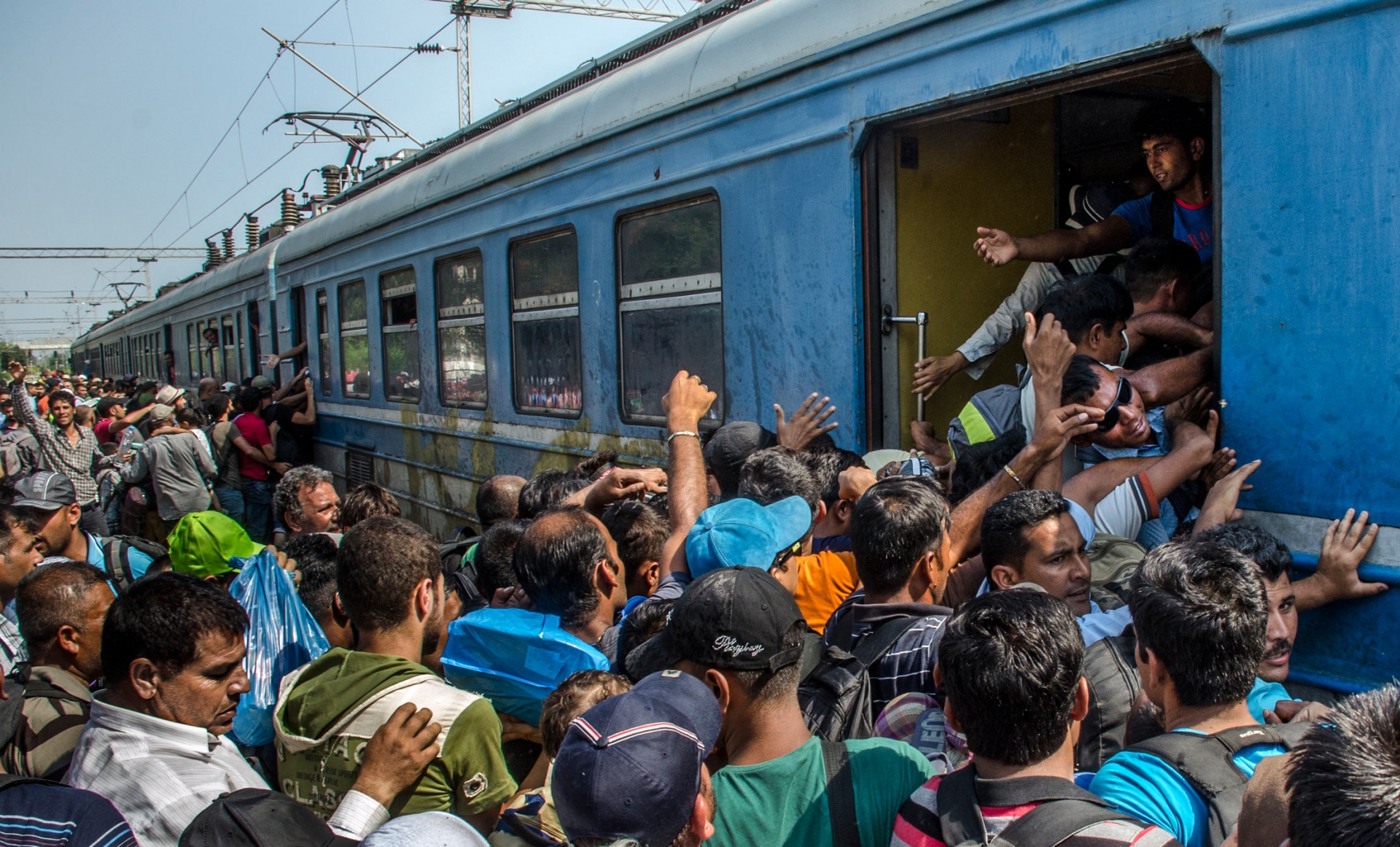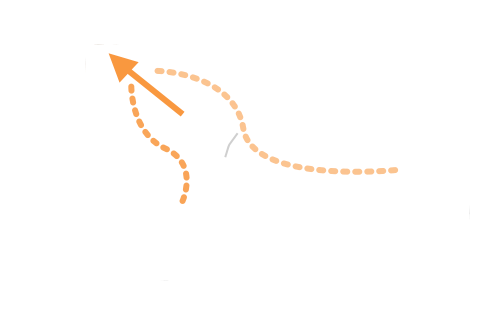“We Are Not Animals, We Are People”
By: Javier Bauluz
There’s no free space on the bus. It’s full of refugees from Syria, Pakistan, Iraq, Afghanistan, Iran and African countries. Everyone is headed to Idomeni, on the Greek border with Macedonia.
The bus stops at a gas station, and many decide to walk to the border six miles away. About 30 people spontaneously form a group and they start to walk, though they don’t know each other. The trek grows tougher as night falls. “Yallah, Yallah!” they urge each other. “Let’s go.” The group advances amid sunflowers, mud and puddles. They all help each other. The young ones offer their hands to the elderly and children.
When they see the camera, they ask the journalist, “Sahafi?” “Yes, I am a journalist.” Many smile and say, “Thank you. Thank you for being here with us. Please tell the world what is happening to us, who we are, why we are here. Maybe they will listen to you.”

One heavy-set Syrian man says, “I will finally see my baby. He is in the Netherlands. He’s one year old.”
When they finally reach the train tracks, a joyful buzz sweeps through the group. They are on the right road. They know that now they must follow the tracks to the border crossing. But the tensions increase, fears spike. “Will the crossing be open? Will they let us cross?”
No one know what’s ahead. There are too many contradictory news reports. After Macedonia declared a state of emergency, a temporary closing of the border was followed by tear gas, night sticks and stun grenades when thousands of desperate people tried to break through.
Voices drop into whispers and they walk almost blindly between the two rails. The gravel makes it hard to walk, and threatens ankle sprains with every step. No one complains. Fathers lift children on their shoulders and keep walking.
In the distance they see lights along the bend of the track. They slow down, not knowing what lies beyond. Now the tracks are illuminated by light posts, and they can see their feet again. Another curve and we start to walk in the dark shadows of parked freight wagons. Other groups of 30, 40, 80 migrants come out and join us. The sense of personal safety grows.
A powerful beam now lights the way. We keep walking. We step on fresh garbage and see signs of the chaotic flight of thousands of people trapped by wire fences. Some tents stand, others are crushed. There are clothes, blankets, plastic bottles, all over. “Can we cross?” they ask themselves. There’s no one around.
From a distance, human shapes blind us with powerful lights. Shouts come out of the darkness. “Stop! Stop!” A wall of armed men blocks our way. The words filter through the group. “It’s closed. We cannot cross.” Eyes full of tears shimmer when the lights from Macedonian flashlights sweep across their faces.
The group of now more than 200 people keeps moving forward. Soon, we knit into a compact group. Body to body, we squeeze together in the darkness, in front of the burly men whose night sticks are visible between the beams of their flashlights. We cannot move.
The uniformed men start to shout, “Sit! Sit!” “Why are they shouting orders at us like we’re dogs? We’re not animals. We are people escaping from the war in our country.” Barbed wire flecked with strips of clothing blocks the way on either side of the tracks. For hours, the refugees are forced to sit on the muddy ground, full of garbage.
A team from Doctors Without Borders arrives at around 3 in the morning and negotiates with the soldiers. After a while, they persuade the soldiers to let in families with children and the weakest. The others give their approval. Amid shouts of “Baby! Baby!” the group parts and allows parents and children to pass.
Eyes again reflect the hope of crossing the border, and the fear of not being picked to cross. After several scuffles, screams, threats and humiliations, they start to allow small groups of 40 people to cross every 30 minutes. Another 400 arrive at the border in the meantime, and everyone waits their turn.
By midnight, the place is empty. The journalist wakes up in one of the abandoned tents. Ate dawn, hundreds of new refugees start arriving, stiff with cold, group after group. The children cry incessantly, tired and thirsty. The uniformed men force them to sit, without getting up or moving. Soon, another 500 people are waiting.
After several tense moments, which affect the scared children especially hard, the new group starts crossing the border and walking toward the new goal: the Gevgelija station, where trains will take them to the Macedonian border with Serbia.
The scene is horrifying. Thousands of people and hundreds of children jam the station and surrounding streets. Most lie on the floor, exhausted and dead asleep. Between the words of the adults, a high-pitched wail is heard everywhere. It’s the smallest boys and girls, crying from exhaustion, lack of sleep, hunger and thirst.

There’s only one small water tap for nearly 2,000 people, and no one offers them even basic help. They are alone, traveling by their own means. No government or big international organizations is there to provide effective assistance to the more than 1,000 refugees who have arrived daily for the past several months. “We are coordinating,” a representative of a United Nations organization tells us. Several weeks later, they were still coordinating.
Local hustlers sell bottled water for 1.50 or even 2 euros. The normal price, just two blocks from the station, is 20 cents. But no one dares leave, afraid of missing the anxiously awaited train. Five euros for four bananas, another hustler asks. Muslims from a nearby mosque turn up with boxes of sandwiches. Before they can walk 60 feet, dozens of little hands clean out the boxes. Most of the adults do not ask for anything, but accept and give thanks when offered a sandwich.
One large group crowds the station’s police office, trying to register and obtain permits to continue the journey toward Serbia, while long lines of taxis wait outside to drive those who have the police permits and enough money.
The shouts and shoving continue in the ticket office. Refugees lucky enough to buy a ticket on the next train are carried out over the shoulders of those still pushing to get to the ticket window. They smile with total joy when they embrace their families and head to the platforms.
Tensions rise as the train’s departure time passes and it does not arrive. A roar goes up when the ancient engine appears in the distance. Hundreds of people jump for the doors even before the train comes to a stop. A policeman hits passengers near him with his night stick, while others jump in through windows to avoid being left behind. The father of four children, after many screams of “Family! Family!” manages to finally bring aboard the last of his terrified sons.
Several families become separated in the chaos. A father with three children shouts to the police through a window to help the mother, who fell behind and remains on the platform. The police do not reply to pleas from the father and a journalist. Another two separated families get off the train to avoid splitting parents and children. Keeping the family together is the absolute priority, and sometimes almost an impossible mission for fathers and mothers. If they are separated, they may never reunite on a route where they don’t even know where they will wind up.
A policeman hauls away two journalists. They do not have the written permissions, issued each day, required to take photos in the chaotic station. They are freed after nearly one hour, threatened with more dire consequences for another violation. They will be detained twice more over the next few days, fortunately without further problems.
Hours pass and the ancient and overcrowded metal train turns into an oven for the refugees jammed inside. The few bottles of water become an absolute necessity for the children, who can barely breathe inside the cars. Sweaty parents hold babies out of open windows to give them fresh air, and cry when someone hands them some water from the platform. The scenes at the station recall the cattle wagons loaded with Jews on their way to the concentration camps.
Finally, the train starts chugging toward with border with Serbia.



